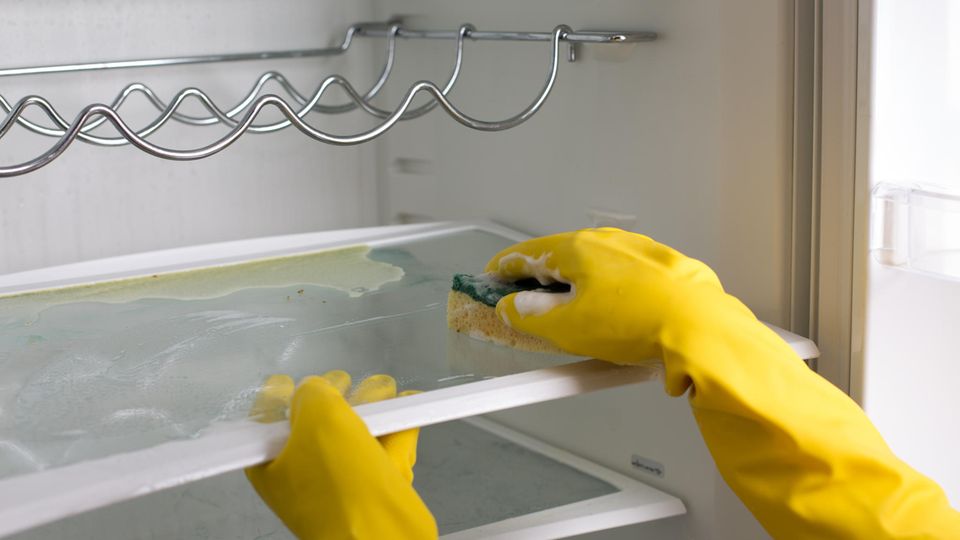When the choking begins in the jungle camp because puke fruit or pig brains are served again, TV Germany watches, spellbound. Why do we voluntarily watch something that makes us sick? And why are we disgusted anyway? A search for clues.
As the employee cut up the dead rat, some left the cinema. Years later, people continued to talk to me about this scene. The woman owned a reptile zoo and used the rat to feed her snakes. She was a protagonist in my film “Disgust“, which explored the limits of what could be shown, even before disgust became a phenomenon on reality TV. The film was fundamental for me. All my films afterward dealt with internal or external transgressions of boundaries, i.e. with what the feeling of disgust is repulsive and fascinating at the same time: When we feel disgusted, we cross a line and are taken out of our comfort zone.
Christa Pfafferott works as an author and director. your film”disgust“won short film awards, her film”Another world” (80 min.) about nurses and patients in a forensic psychiatric hospital can currently be seen on Netflix.
© private
Disgust is also a protective mechanism
The question, however, is: Why do we watch other people who are exposed to their disgust and see disgusting things in films, TV, books, and on the Internet? If disgust causes us such discomfort, what makes it pleasurable? Why do we look away and then back at the same time?
Disgust is a powerful basic human emotion that is triggered across all senses. A universal feeling that probably arises in the so-called amygdala in the brain, where feelings and urges are processed. People who are disgusted look the same all over the world. We wrinkle our nose, pinch our mouth or stick out our tongue, everything fights back. Disgust fills the body directly and sensually; we cannot hide it. It provokes a direct reaction, from shuddering, gagging, heart palpitations, goosebumps, nausea to vomiting: Eeeeeeeeeeeeeeeeeeeeeeeeeeee. Bah. Yuck.
Normally we don’t intend the disgust. It “happens” to us. Disgust is an important defense to prevent disease. A kind of basic disgust that almost all people have in common is that we are disgusted by spoiled food, by excrement and by corpses. The consistency of something spongy, greasy, sticky or moldy is usually perceived as disgusting. But disgust is, above all, acquired. Babies and small children are not disgusted and still playfully touch feces. We only become disgusted after a certain age, as a result of being trained to be clean.
We are not disgusted with ourselves
Disgust is culturally influenced. While in some countries frogs, dogs or insects are a delicacy, in others they are frowned upon as disgusting. The fact that people in Europe blow their snot into a paper towel is disgusting to other cultures, who instead raise their noses loudly. Disgust is part of our cultural identity. As a rule, we are not disgusted by ourselves, our own boogers, smell or our excrement. It is the other thing that makes us disgusted.
“The elementary pattern of disgust is the experience of a closeness that is not wanted,” writes the scientist Winfried Mennighaus in his study of disgust. Disgust draws a line between us and the other. It is an important boundary.
Maintaining our level of closeness and distance is essential – exceeding them can be traumatic. That’s why it’s important to know and respect the limits of disgust. Overcoming it means allowing closeness. As long as we feel disgusted, we actually keep our distance, jump on chairs in front of rats and spiders, and turn away.
In front of the screen we are in a powerful situation
The special thing about disgust is that it triggers this specific defensive reaction. It is primarily directed at a specific object and is therefore less diffuse than the feeling of fear. According to the Hungarian-born philosopher Aurel Kolnai, who wrote one of the first fundamental writings on disgust in 1929, disgust is different from fear, but refers to fear. Disgust is more specific, physical, an immediate reaction to what bothers us. We try to get rid of fear. Disgust, on the other hand, according to Kolnai, focuses us particularly on the object. We are “immediately challenged” by the object, provoked: “The disgusting thing grins, stares, and stinks ‘at’ us,” he writes. It disgusts us. It makes you dread it. It’s not necessarily the object itself that’s disgusting, but rather what we project onto it.
But disgust can also trigger pleasure if we can watch other people cross their disgust threshold through the distance of the screen. In front of the screen we are in the powerful position of being able to decide how far we allow ourselves to be disgusted. We ask ourselves whether we could do and endure the disgusting thing ourselves.
Overcoming disgust may lead to new freedom
In many stories, heroines and heroes develop when they cross the boundaries of their disgust and fear. They often emerge from the experience as more mature people.
However, the pleasure in other people’s disgust confirms our disgust rather than weaning us from it. Another reason for the desire to cross borders is the breaking of social taboos: our cultural background creates a certain norm of disgust. In Western culture we have classic objects that seem disgusting to us. Such as vermin, spiders, rats, snakes. Touching or even ingesting something disgusting also transcends social boundaries Limits and norms of behavior, and disgust is transferred to the action. This can lead to people being stigmatized as disgusting because of their actions. But with the breaking of taboos that some people When they tread, they also expand the normative boundaries of what is disgusting. That fascinates many people.
“You don’t have to be disgusted,” said the reptile zoo owner in my film. According to her thesis, we are often disgusted because we are alienated from nature. While I was filming her back then, I didn’t feel any disgust. The protective function of disgust may have disappeared for me because the woman showed what she was doing as something natural. The disgust for me only came later when I looked at the pictures in the edit. However, I felt that facing disgust also means getting to know yourself in a new way. Overcoming it can perhaps have the effect of gaining a new freedom.



